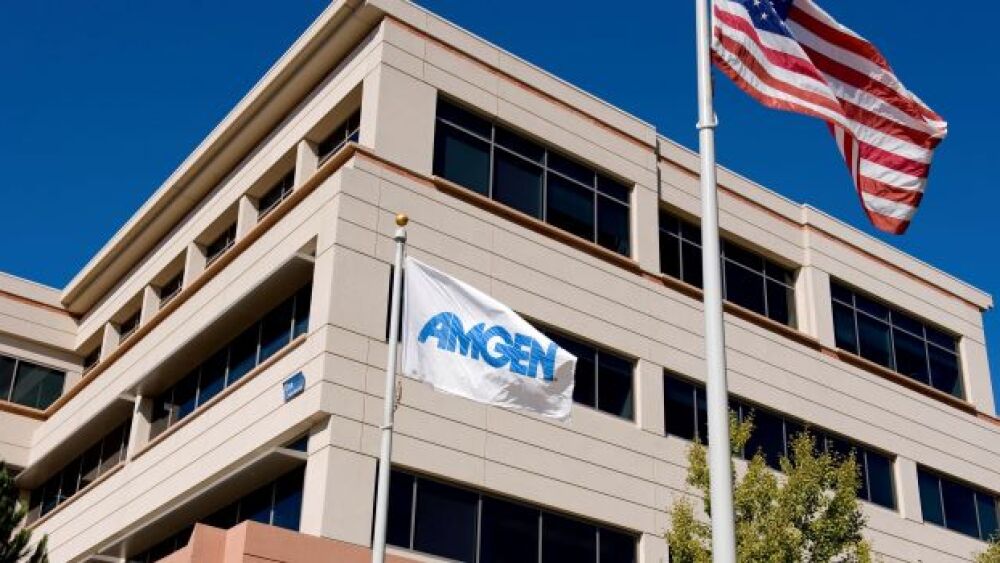In another early high-value deal, Amgen inked a licensing agreement with Synaffix for the development of next-generation antibody-drug conjugates.
Courtesy of Amgen
Biotech behemoth Amgen inked a licensing agreement Thursday with Netherlands-based Synaffix for the development of next-generation antibody-drug conjugates.
Under the terms of the deal, Amgen is pledging up to $2 billion in payments to be made when the agreement is signed, after a program has been nominated and when the partnership hits specific development, regulatory and commercial milestones.
Synaffix will also be entitled to tiered royalties on sales in-line with the recently signed licenses of its ADC platform.
In return, Amgen gains access to the entire suite of Synaffix’s ADC platform.
The suite consists of GlycoConnect, which identifies the optimal drug-antibody ratio to maximize therapeutic efficacy, and HydraSpace, a polar spacer that boosts the ADC’s efficacy, tolerability, pharmacokinetic profile and manufacturability.
The platform also includes various toxSYN linker-payloads, with different mechanisms of action, providing options for maximal efficacy depending on the specific tumor’s biology.
The agreement allows Amgen to leverage these technologies for one ADC program but also provides it the option to exercise exclusive licenses to develop and commercialize four more programs later on.
Amgen is Synaffix’s newest ADC partner. The Dutch company has inked similar technology collaborations with ProfoundBio in September 2021, Innovent in June 2021 and Mersana Therapeutics in January 2019, among others.
An Appetite for Growth
The Synaffix partnership is only the latest business move for Amgen. Last month, the California-based powerhouse made waves when it acquired rare disease giant Horizon Therapeutics for $116.50 per share. With a price tag of $26.4 billion, the deal was biotech’s biggest in 2022.
Amgen beat out fellow heavy-hitters Sanofi and Janssen, both of which were also in the running to acquire Horizon, according to several reports.
With the Horizon buyout, Amgen beefed up its rare immune disease pipeline with Tepezza (teprotumumab-trbw), which received FDA approval in January 2020 for thyroid eye disease. Amgen also gained access to Uplizna (inebilizumab-cdon) and Krystexxa (pegloticase), both of which belong to Horizon’s Orphan Segment.
In August last year, Amgen bought ChemoCentryx, dropping $3.7 billion to gain access to several of its assets, including Tavneos (avacopan), a first-in-class medicine for serious and rare autoimmune diseases.
Beyond the rare disease space, Amgen also made big business moves in the past year. Reminiscent of Synaffix, the company welcomed 2022 with a high-value deal.
For $50 million upfront and a potential $1.9 billion total, Amgen signed a research partnership with Generate Biomedicines to discover and develop protein drugs for five targets.
The following month, Amgen entered into a $500-million exclusive, worldwide research collaboration and license agreement with Plexium, Inc. to advance protein degradation therapies.
Featured Jobs on BioSpace






